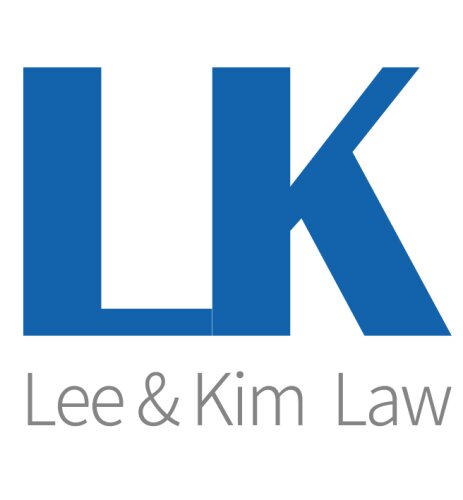Best Mortgage Lawyers in South Korea
Share your needs with us, get contacted by law firms.
Free. Takes 2 min.
Free Guide to Hiring a Real Estate Lawyer
Or refine your search by selecting a city:
List of the best lawyers in South Korea
About Mortgage Law in South Korea
Mortgage law in South Korea plays a critical role in the realm of real estate and property transactions. This legal field addresses the interests and rights of banks and other financial institutions that provide loans secured against real property, as well as the rights of borrowers. Mortgages are essentially security interests in property, used to ensure the repayment of loans for real estate purchases. South Korea’s legal structure around mortgages is designed to protect both lenders and borrowers, ensuring that property transactions are executed fairly and transparently. The market is regulated by a mix of government policies, banking laws, and industry practices.
Why You May Need a Lawyer
There are multiple situations where legal expertise in mortgages might be necessary in South Korea. These include, but are not limited to:
- Understanding complex mortgage terms and conditions.
- Negotiating or reviewing mortgage agreements to ensure fairness and compliance with South Korean law.
- Assisting when entering into foreclosure due to missed payments and exploring available options.
- Navigating legal ramifications of defaulting on a mortgage loan.
- Assistance with mortgage fraud or disputes over mortgage misrepresentation.
- Cross-border mortgage issues if you are a foreign national purchasing property in South Korea.
- Refinancing or early settlement of a mortgage.
Local Laws Overview
Mortgages in South Korea are governed by several key laws and regulations:
- Housing Purchase Loan Regulations: There are strict regulations on the amount of loan relative to the property value (Loan-to-Value ratio) and the borrower's repayment ability (Debt-to-Income ratio).
- Real Estate Act: Governs the buy-sell transaction process and ensures the legality and transparency of property transactions.
- Banking Act: Regulates the operations of financial institutions providing mortgage loans, ensuring they adhere to consumer protection standards.
- Foreclosure Law: Outlines procedures for foreclosure, which can be a complex process if a borrower defaults on a mortgage.
- Consumer Protection Law: Provides guidelines to protect mortgage borrowers from unfair treatment or restrictive practices by lenders.
Frequently Asked Questions
What is the typical process for obtaining a mortgage in South Korea?
Typically, you must first get pre-approved by a bank, submit the necessary documents, and then undergo a credit assessment. Once approved, you'll proceed to finalize the loan with an official agreement before securing the property purchase.
Can foreigners apply for a mortgage in South Korea?
Yes, foreigners can apply for a mortgage in South Korea, though the process may come with additional requirements and restrictions. It's often advisable to seek legal guidance tailored to foreign applicants.
What is the Loan-to-Value (LTV) ratio, and how does it affect my mortgage?
The LTV ratio is a financial term used by lenders to assess risk. It compares the loan amount to the appraised value of the property. In South Korea, there are limits set on LTV which affects how much you can borrow against a property.
What happens if I default on my mortgage payments?
Defaulting on mortgage payments can lead to foreclosure, where the lender seeks to repossess the property. It's crucial to address missed payments early to explore options like restructuring or renegotiation.
How is mortgage interest calculated and paid in South Korea?
South Korean mortgages typically have options for fixed or variable interest rates calculated either monthly or annually. Repayment schedules can vary, so it is important to understand the terms before committing.
What should I consider before refinancing my mortgage?
Before refinancing, consider the new interest rate, extra fees involved, potential penalties for early repayment, and the impact on your financial situation. Consulting a financial advisor or lawyer could provide insights into refinancing benefits and drawbacks.
Is there a penalty for paying off my mortgage early?
Some mortgage contracts in South Korea may include penalties for early repayment. It's essential to understand these terms during the agreement phase and discuss possible options with your lender.
How does foreclosure work in South Korea?
Foreclosure typically involves a legal process where the lender seeks to sell the borrower’s property to recover the owed loan amount. South Korean law requires specific procedures to be followed, often involving court actions.
Are there government policies supporting first-time homebuyers?
Yes, the South Korean government often introduces policies to aid first-time buyers through subsidies or favorable loan conditions. These policies can vary, so it's important to stay informed about current offerings.
What should I do if I suspect mortgage fraud or misrepresentation?
If you suspect fraud, it’s advisable to immediately consult with a legal expert who specializes in property and mortgage law to help you navigate the situation and protect your interests.
Additional Resources
Several resources can aid individuals seeking more information or help with mortgages in South Korea:
- Korea Housing Finance Corporation: Offers comprehensive information and support related to housing finance and mortgages.
- Financial Supervisory Service (FSS): Provides consumer protection and financial oversight, helping resolve disputes with financial institutions.
- Legal Aid Corporation: Offers legal assistance and support for those needing help in navigating mortgage law.
- Korea Consumer Agency: Protects consumer rights, including matters related to mortgages and housing finance.
Next Steps
If you require legal assistance concerning a mortgage in South Korea, consider the following steps:
- Consult Legal Professionals: Engage with a lawyer skilled in both real estate and financial regulations.
- Gather Documentation: Assemble all relevant documents, such as mortgage contracts, correspondence, and payment history, to provide clear context during consultations.
- Identify Your Needs: Determine whether you need help with understanding, negotiating, or disputing mortgage terms.
- Contact Relevant Bodies: Reach out to organizations and governmental bodies that offer aid and guidance on housing and mortgages.
- Stay Updated: Keep informed about ongoing changes in mortgage laws and government policies, as these can impact your options and obligations.
Lawzana helps you find the best lawyers and law firms in South Korea through a curated and pre-screened list of qualified legal professionals. Our platform offers rankings and detailed profiles of attorneys and law firms, allowing you to compare based on practice areas, including Mortgage, experience, and client feedback.
Each profile includes a description of the firm's areas of practice, client reviews, team members and partners, year of establishment, spoken languages, office locations, contact information, social media presence, and any published articles or resources. Most firms on our platform speak English and are experienced in both local and international legal matters.
Get a quote from top-rated law firms in South Korea — quickly, securely, and without unnecessary hassle.
Disclaimer:
The information provided on this page is for general informational purposes only and does not constitute legal advice. While we strive to ensure the accuracy and relevance of the content, legal information may change over time, and interpretations of the law can vary. You should always consult with a qualified legal professional for advice specific to your situation.
We disclaim all liability for actions taken or not taken based on the content of this page. If you believe any information is incorrect or outdated, please contact us, and we will review and update it where appropriate.
Browse mortgage law firms by city in South Korea
Refine your search by selecting a city.















